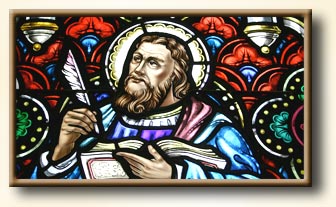|
A Collect is a prayer said by the minister (whether bishop, priest, deacon or lay reader) on behalf of the congregation. We think of these prayers as being the “collected” prayers of all the people, offered up by the minister on their behalf.
The name, “Collect,” is particularly applied to certain special prayers. For example, the prayer that is said just before the reading of the Epistle at the Holy Eucharist is called the Collect for the Day. In several cases, more than one such prayer is provided; for instance, there are three for the Good Friday Liturgy.
These are all printed in the Book of Common Prayer. Most of them are beautiful translations by Archbishop Thomas Cranmer (1489-1556) of ancient prayers hitherto in Latin. All of these Collects are addressed to God the Father, save three (Advent III, St. Stephen’s Day and Lent I) Other Collects, all addressed to the Father, are found in Morning and Evening Prayer. The former has Collects for Peace and for Grace; the latter has Collects for Peace and for Aid Against Perils. Collects are also provided in the Prayer Book for some of the Lesser Sacraments and some of the Occasional Offices, examples being Ordination, Visitation of the sick, Etc.
The word, “Collect,” actually comes from a Latin phrase, “Oratio Ad Collectam” (“The Prayer at the Assembly”), which designated prayers said by the Pope on certain occasions during Holy Week. But the term has long been explained popularly and quite satisfactorily as meaning the prayers of the people collected, gathered up and offered by the minister. As such, they merit the hearty assent of the people, signified by an audible and approving “AMEN” at their close.
The original Collects were nearly all in a standard form. First came the salutation, then a description of some act or attribute of God, then a petition or request and finally a doxology, a phrase of praise and glory. A classic example is the Collect for Monday in Easter Week: “O God (salutation) whose blessed Son did manifest himself to his disciples in the breaking of bread (description of an act of God); Open, we pray thee, the eyes of our faith, that we may behold thee in all they works (petition or request); through the same thy Son Jesus Christ our Lord (doxology), Amen.” Although this fourfold construction may still be seen in many of the Collects, there are some, especially those which through the years have been substituted for others, which have departed in some degree from the classical form.
Many of the Collects are among the most beautiful and meaningful passages in the Book of Common Prayer. The least the worshipper can do is to listen to and share in them, making them silently his own (and audibly too, for that matter, through the “Amen”) when they are said by the minister. Many people have memorized some especially lovely and significant ones and here and there are persons who have memorized all of them!
“Let thy merciful ears, O Lord, be open to the prayers of thy humble servants; and, that they may obtain their petitions, make them to ask such things as shall please thee; through Jesus Christ our Lord. Amen.”
-The Collect for the Tenth Sunday after Trinity.
|



